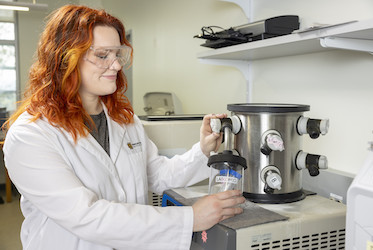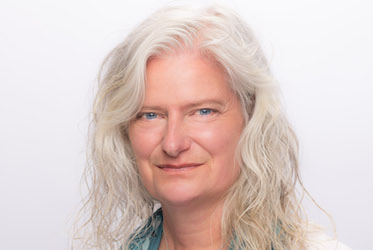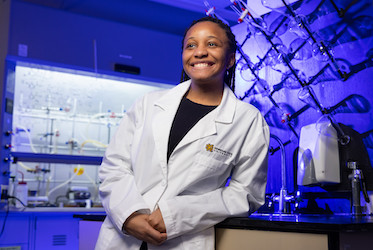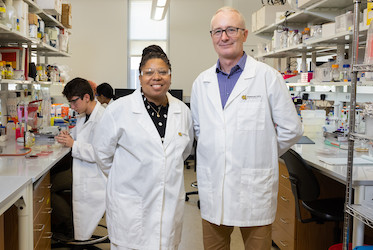
Gone Fishin'
KENNESAW, Ga. | Jul 12, 2019
Biology professor’s research keeps eye on fish habitats
For many anglers, summer is one of the best times to fish in nearby waters. The excitement of a fish hitting the bait and tugging the bobber under is a magical moment. However, there is nothing more disappointing than to venture out for a day of fishing only to discover that not only are fish not biting, worse yet, they aren’t even there anymore.
KSU Biology Professor Bill Ensign has been working with local governments over the past two decades monitoring local streams’ ability to sustain aquatic life and to suggest ways to improve fish habitats.
His interest in ecology began when he was a young boy growing up in Chattanooga, Tenn.
“We had a cabin on Chickamauga Reservoir and my dad would take me fishing,” Ensign said. “I had my little cane pole, my bobber, a hook and a worm. That’s all you needed, and the positive reinforcement of catching fish made me want to know how the fish lived where they did and why the bobber went under water here, and not there.”

Ensign’s desire to understand fish, their habitats, and the other environmental factors supporting them led him to pursue his doctorate in fisheries science from Virginia Tech in 1995. An ecologist, Ensign joined KSU in 1997 and is a professor of biology in the Department of Ecology, Evolution and Organismal Biology.
His research in freshwater fish over the years makes him optimistic that the fish in the lakes, rivers and streams near KSU will continue to be there for generations to come, as long as humans don’t cause pollution or over development that spoils the aquatic environment.
“Every summer, I sample with Cobb and Paulding County water authorities,” Ensign explained. “We sample local streams and look at the kinds of fish out there and their relative abundance to get an idea of how healthy these streams happen to be.”
The sampling is mandated by the federal Clean Water Act, which requires monitoring for pollution to ensure water quality.
“Paulding and Cobb have to do that because they discharge treated water into these streams from their wastewater treatment plants. The Clean Water Act dictates that they monitor stream quality and my sampling addresses the biological side.”
Ensign and a team of KSU biology students regularly check on streams and creeks that wind across the two counties.
Their studies show the 20-mile long Noonday Creek, which runs just north and east of the Kennesaw Campus, has fewer kinds of fish swimming in its waters than would be expected. Ensign said that it is suffering from the effects of farming and development over the years.
“Thanks to the Clean Water Act, the worst pollutants no longer get into the stream, but biologically it still isn’t what it should be,” he said. “Many species of fish have disappeared from Noonday Creek over the last 100 years.”
Ensign explains that the effects of deforestation, row crop agriculture, and real estate development have taken their toll on the land and the water.
“Many of those actions put silt and sediment into the stream. Even though the effects may have occurred over a century ago, if the species we lost can’t get back upstream to recolonize, we will never see them in Noonday Creek again,” he said.

In much better shape is Raccoon Creek in Paulding County. Ensign may find 12 different types of fish in 100 yards of Noonday Creek but can expect to find twice that many in a similar stretch of Raccoon Creek.
“Because of the way the land lays along Raccoon Creek any farming done there in the past was very minimal. There were no large plantation-style operations,” he said.
Ensign, along with Paulding County, the Georgia Department of Natural Resources, and the Nature Conservancy, is working to establish an environmental education and research facility associated with Raccoon Creek for environmental education and outreach.
– Robert S. Godlewski
Photography by David Caselli
Related Stories
A leader in innovative teaching and learning, Kennesaw State University offers undergraduate, graduate and doctoral degrees to its more than 45,000 students. Kennesaw State is a member of the University System of Georgia with 11 academic colleges. The university’s vibrant campus culture, diverse population, strong global ties and entrepreneurial spirit draw students from throughout the country and the world. Kennesaw State is a Carnegie-designated doctoral research institution (R2), placing it among an elite group of only 7 percent of U.S. colleges and universities with an R1 or R2 status. For more information, visit kennesaw.edu.


















